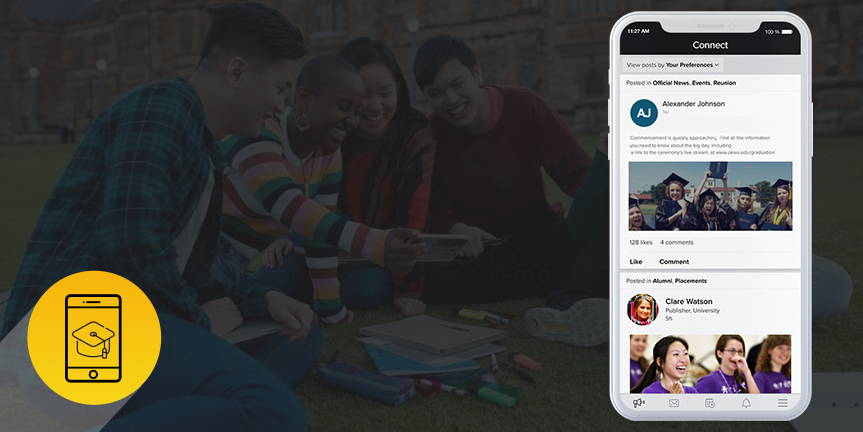4 Mobile Learning Strategies To Engage Students And Employees
The young learners today have grown up in the age of technology. They spend most of their time on mobile phones and tablets to access important information whenever they need. Starting from college to professional career, young learners depend upon mobile to understand and interact with the world around them. One of the best ways to enhance student learning and communication is by leveraging mobile technologies.
Today’s young learners driven by mobile technology constitute the workforce of tomorrow. They consider technology an integral part of their learning. This tech-savvy generation believes that mobile campus solutions are an integral part of academic and social life. Upon facing challenges pertaining to academic learning and development this generation tends to self-teach the technology essential for academic growth.
It is imperative to understand the emerging trends in technologies to identify upcoming challenges and opportunities. A growing number of smartphone users, creates room for new ideas that can improve learning experience for students. To train employees or impart education in institutions you need to create a holistic learning experience, which can be accessed anytime and anywhere, and this can be done by creating a mobile solution that spans college campuses to corporate offices.
Here are the top microlearning strategies derived from the experience of both students and professionals. These describe how mobile interactions enhance self-learning abilities on-the-go.
- Establish A Success Setup – When a student newly joins your institution or an employee comes aboard, their initial days tend to be overwhelming. You can reduce their stress by bringing all the campus facilities and resources to their fingertips.
As soon as you notice a curiosity among the students and find them eager to learn more, you can offer a one-day course accessible on their mobiles to train them during in-between orientation activities. Through such training sessions, teach them how to get ease-of-access to courses, transcripts, tours, attendance tracker and other course-related resources through mobile. - Enhance or Develop New Skills – New projects require new skills, making it challenging for employees to learn how to quickly navigate. When it comes to students, a new format for a paper due in the last few minutes before exam, they may find it hard to align themselves towards it.
These problems can be solved by providing them an easy-to-access mobile app that explicitly guides them through in-app tips and guides. - Evolve Systems Skills – Understanding a new tool can be challenging for any user, but once the user learns how to use it and becomes accustomed to it, they get into a new routine. Changes in the systems can disturb the routine, so, educating the users beforehand is the only way to combat such issues.
Be it a company or institution, send notifications and alert the audience about the new shift through mobile apps, bringing them up to speed on the upcoming changes. - Career Advancement through Self-service – While stepping into the professional career, students and employees look for tools and resources which which help guide them through current best-practices – for example, rebuilding a candidate’s resume or preparing for the initial rounds of an interview. You can support such individuals through in-app best practices on interviews, networking, and more. Not to mention, the app must provide easy access to valuable resources.
Mobile campus solutions encourage young learners through generations to learn anytime and anywhere. Build mobile app without coding through Unifyed and leverage the learning process for both students and employees.

